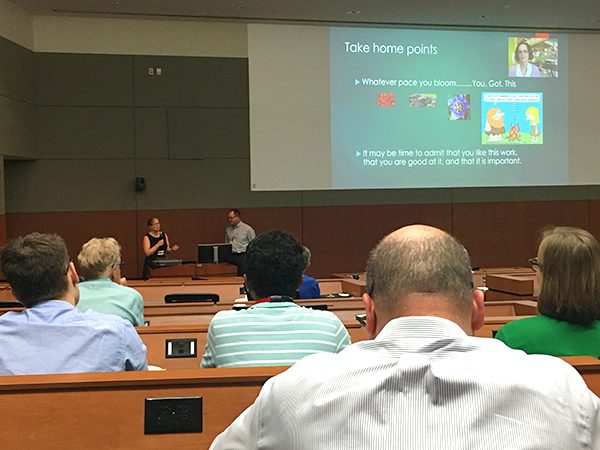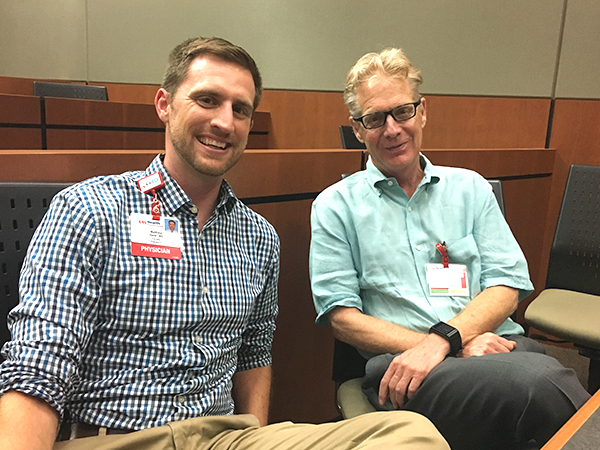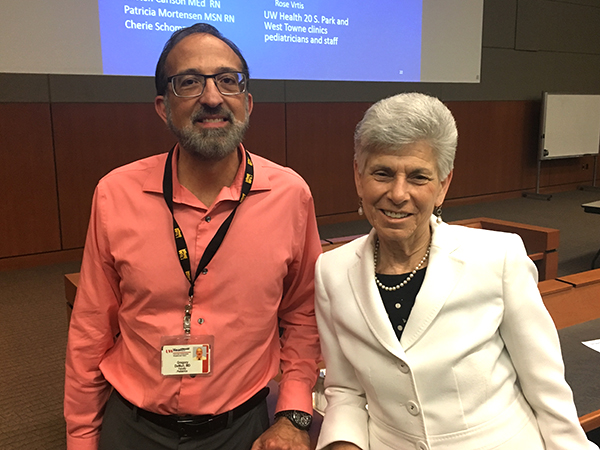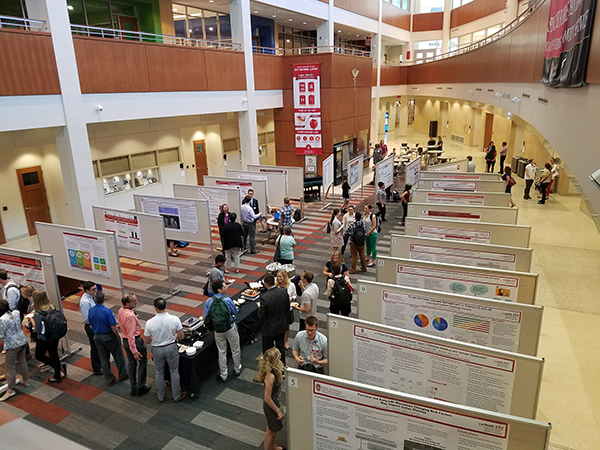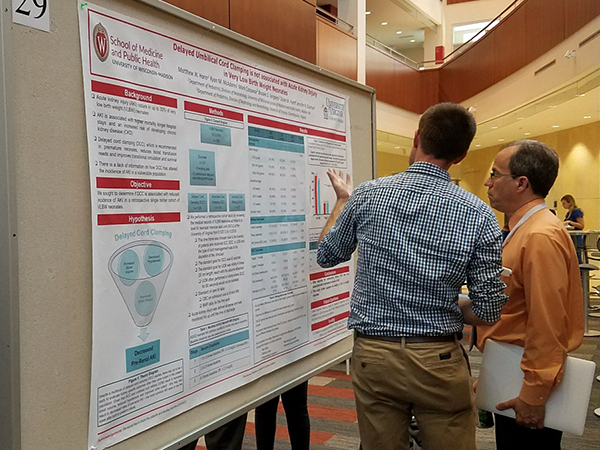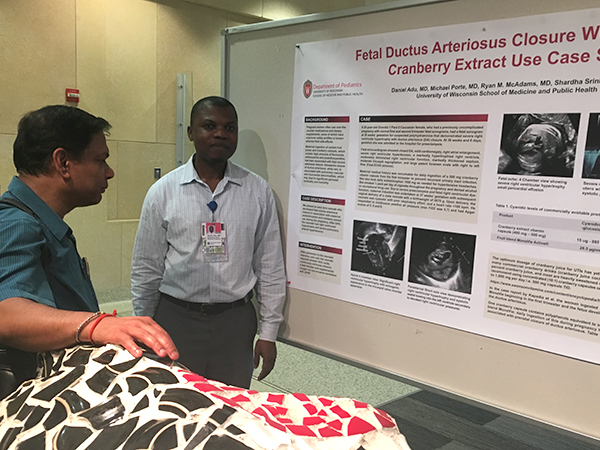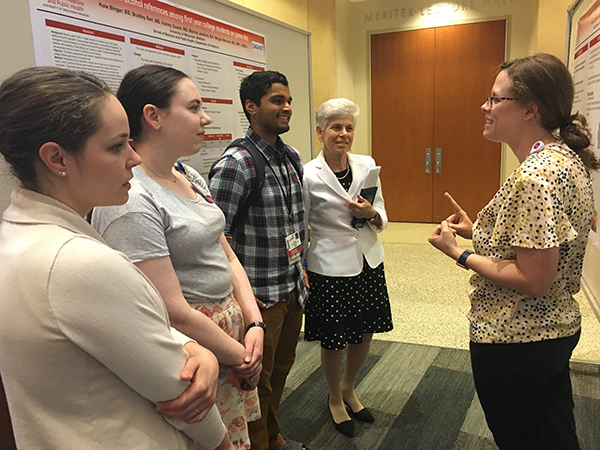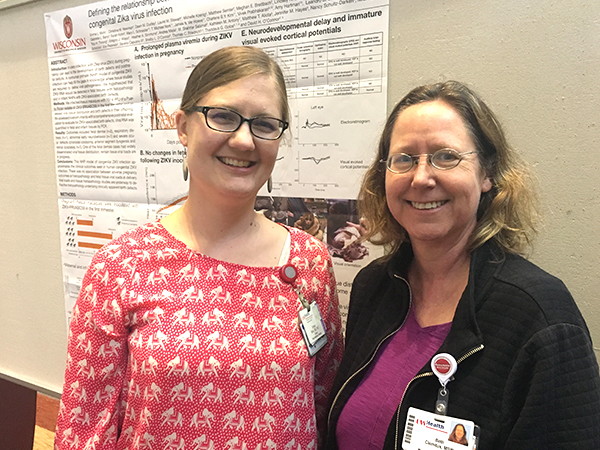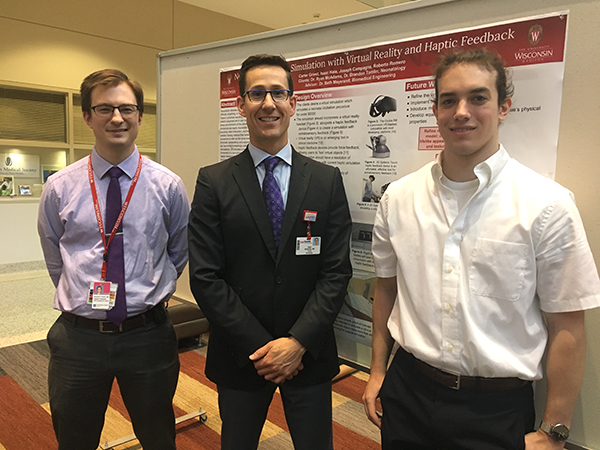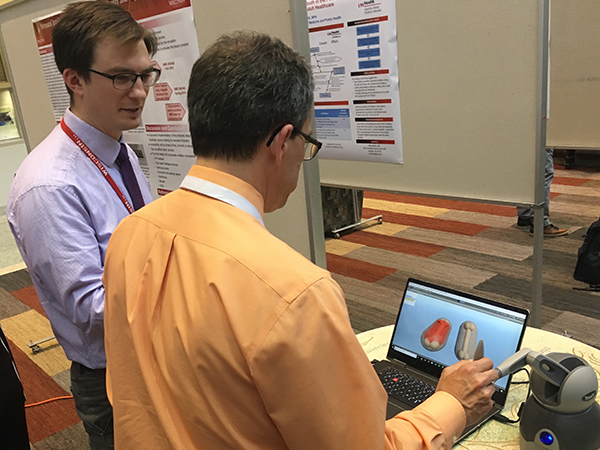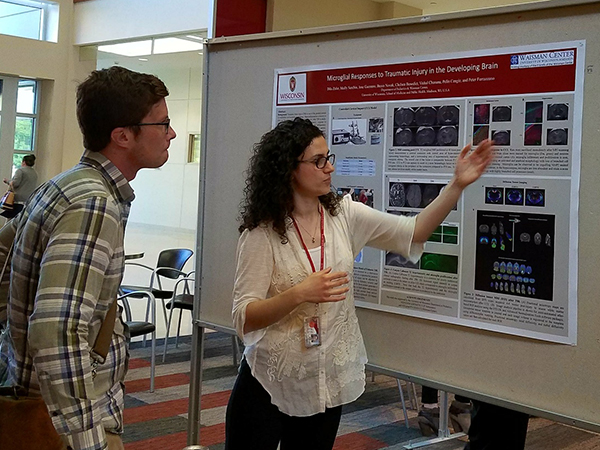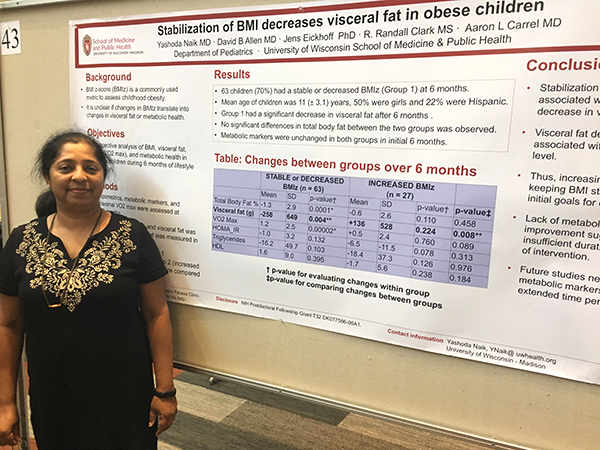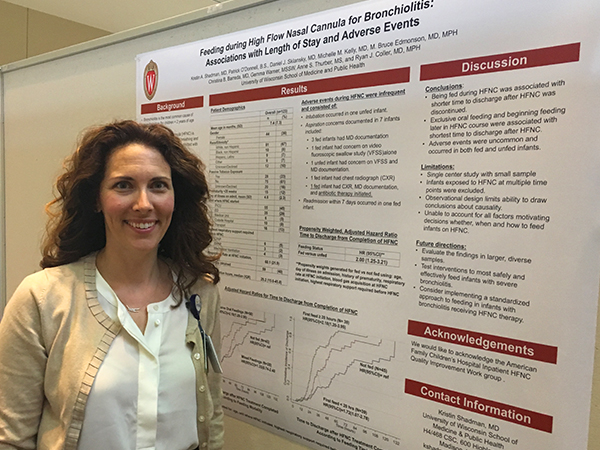A resonant keynote address from Megan Moreno, MD, MSEd, MPH, and a 27 percent increase in abstracts from faculty and learners were among the highlights of the Department of Pediatrics’ 2018 Spring Research Day, held Friday, June 1, 2018, at the Health Sciences Learning Center (HSLC).
The day kicked off with a welcome from James Gern, MD, the department’s vice chair for research, followed by the keynote from Dr. Moreno, the department’s vice chair of digital health and the academic division chief for General Pediatrics and Adolescent Medicine.
In her presentation, “Bloom,” Dr. Moreno acknowledged the many paths to research that learners and practicing clinicians might take in their career. “There’s no one path or timeframe that’s more valid,” she said, noting that she considers herself a late bloomer in the field.
She explained that clinicians and researchers alike want to understand how and whether things work, want to share what they learn through writing and want policy and practice to reflect evidence. But for clinicians, imposter syndrome—a feeling of inadequacy and self-doubt despite high achievement—can get in the way.
To encourage more clinicians to engage in research, Dr. Moreno shared three observations: that studies suggest academic physicians have lower rates of burnout and stagnation; that research ideas flow from clinical experience and back to the clinic; and that research provides a path to improve care for patients a clinician will never meet.
She then offered the following 10 reasons why clinic skills are great preparation for research:
- Both rely on being passionate about asking a question and finding an answer;
- Both require you to be comfortable with uncertainty;
- Both require you to acknowledge that you sometimes make mistakes;
- Both involve using a fancy name for “best guess”;
- In both scenarios, if you don’t document what you did for others to use, it never happened;
- Both require you to bring your thickest skin;
- Both involve an expectation to share what you have learned to benefit others;
- Both challenge you to find what motivates you and return to it as needed;
- In both types of work you get to spend time with other passionate, fun and smart people; and
- In both types of work, you can get scared that you are not enough.
“Each of you has a story or experience you can return to center your own strength, and I encourage you to hold on to and return to that,” she concluded. “Whatever pace is yours, whatever path is yours – you got this.”
Six Oral Presentations and 27 Percent More Abstracts
The day continued with six oral presentations:
- Maternal Stress and Depression Are Associated with Development of a High-Wheeze, Low-Atopy Phenotype in Their Young Offspring (Sima Ramratnam, MD)
- Treatment of Positive Urine Cultures in the NICU – A Potential Source of Unnecessary Antibiotic Exposure (Daniel Gorski, MD)
- Reduced ED Visits and Hospitalizations from Medical Device Complications After Enrollment in Complex Care (Christina Barreda, MD)
- Treatment of Infant Formula with Patiromer Dose Dependently Decreases Potassium Concentration (Neil Paloian, MD)
- The AFCH PEWS Scoring Tool: How Are We Doing After Ten Years? (Nicole Kamps, MD)
- Symptom Scores and Frequency of Upper Respiratory Infections in Children Diagnosed with Acute Bacterial Sinusitis (Gregory DeMuri, MD)
This year’s Research Day also included 90 abstracts by faculty, fellows and residents, a 27 percent increase from 2017. Of these, 55 (61%) were accepted at the Pediatric Academic Societies (PAS) meeting: 44 as poster presentations, 10 as platform presentations and one as a workshop.
Sixty-three of those abstracts were displayed as research posters in the HSLC atrium throughout Friday afternoon.
Thanks to everyone who made this year’s event a success!
